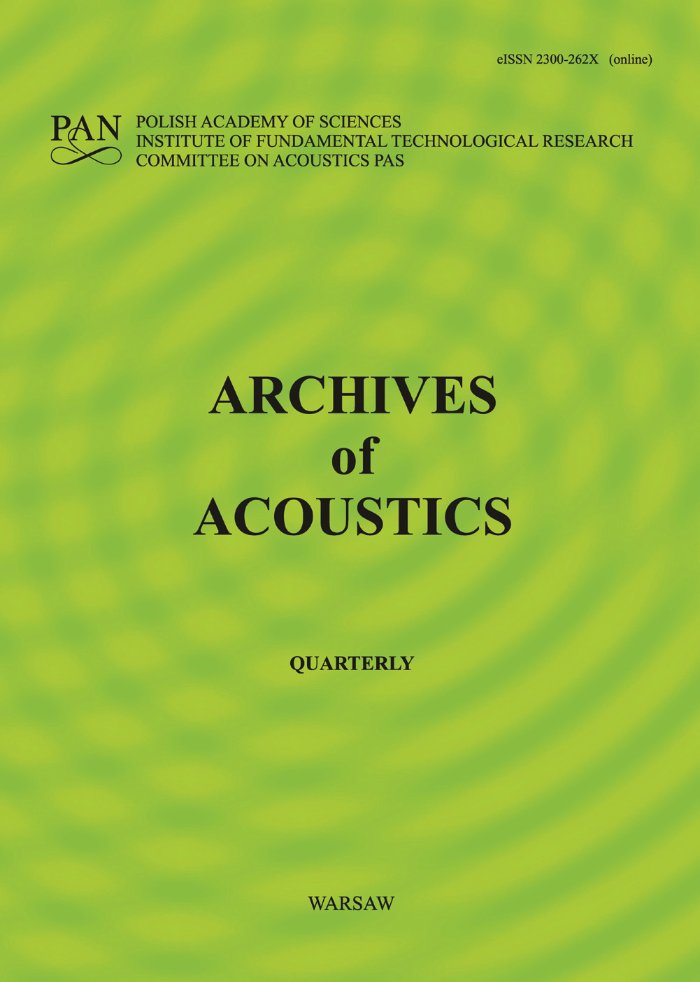Abstract
A series of experiments has been performed in order to find specific features of pitch memory in persons possessing the so-called absolute pitch. Sixty one music students were given a test of passive absolute pitch (pitch-naming test); then a part of this group was subjected to another test in order to determine their ability to produce required musical pitch without being given any reference tone (active absolute pitch). A criterion for absolute pitch was proposed on the basis of the evaluation of the precision of tuning a pure-tone generator to the required musical pitch. Finally, two musicians, one of them possessing absolute-pitch, were given a task of tuning a pure-tone generator to the pitch of a standard after various delay times. The results were presented in the form of pitch-forgetting curves.References
[1] W. D. WARD, E. M. BURNS, Absolute pitch. In: D. Deutsch, ed., The Psychology of Music, Academic Press, London-New York (1982).
[2] G. REVESZ, Zur Grundlagen der Tonpsychologie, Veit, Leipzig, 1913.
[3] A. BACHEM, Various types of absolute pitch, J. Acoust. Soc. Am., 9, 146-158 (1937).
[4] J. D. HARRIS, Discrimination of pitch-suggestions towards method and procedure, Am. J. Psychol., 61, 309-322 (1948).
[2] G. REVESZ, Zur Grundlagen der Tonpsychologie, Veit, Leipzig, 1913.
[3] A. BACHEM, Various types of absolute pitch, J. Acoust. Soc. Am., 9, 146-158 (1937).
[4] J. D. HARRIS, Discrimination of pitch-suggestions towards method and procedure, Am. J. Psychol., 61, 309-322 (1948).


